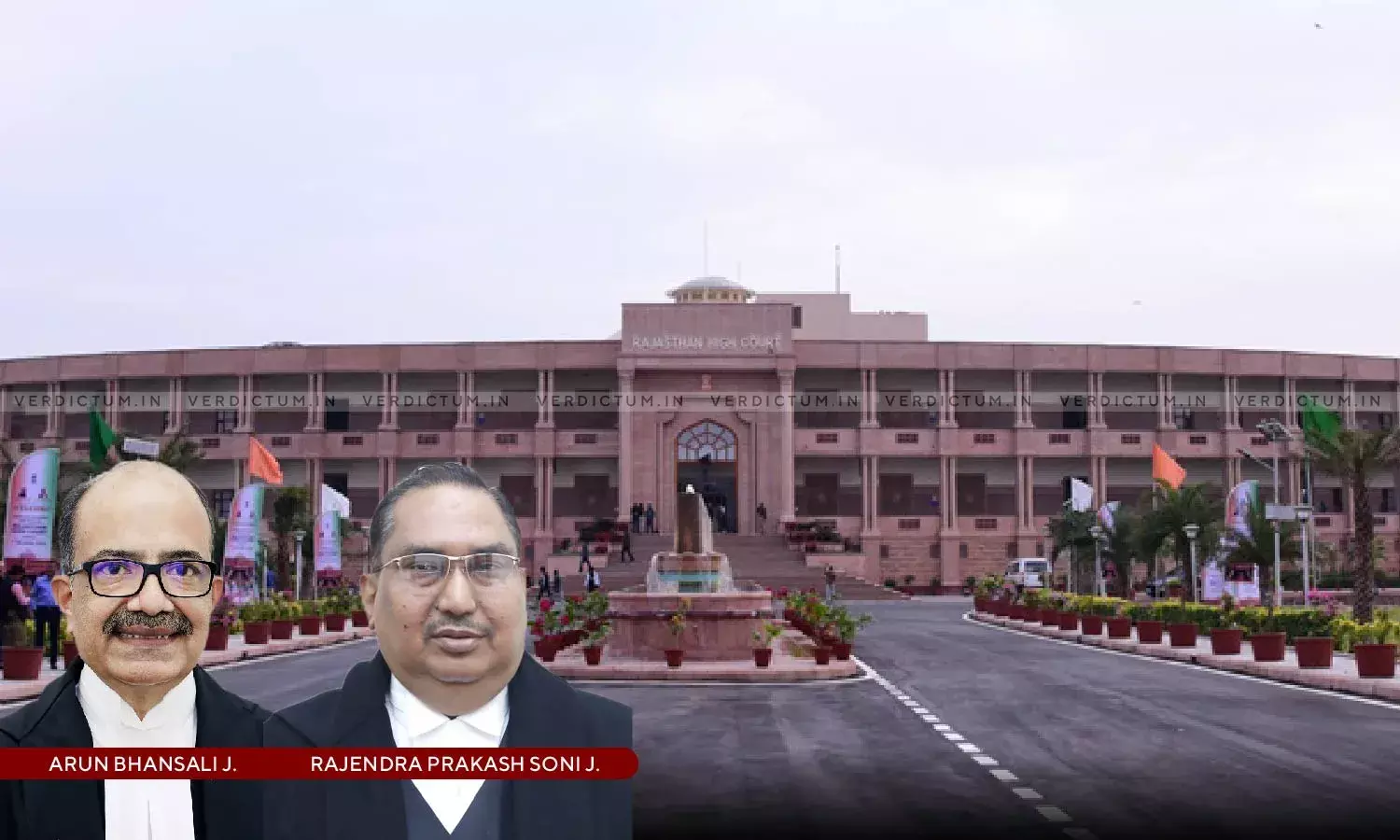Detenue Was Not Given Adequate Opportunity To Make Representation: Rajasthan HC Sets Aside Preventive Detention Order

While setting aside the order of preventive detention passed by the State Government and the District Magistrate, the Rajasthan High Court stated that the detenue was not afforded adequate opportunity to make a representation as required under Section 9(1) of the Rajasthan Prevention of Anti-Social Activities Act, 2006 (Act of 2006).
Stating that the order dated July 21, 2022, by the State Government was mechanical in nature and the non-service of the said order was highly prejudicial to his interest preventing him from availing remedy against the said order, a Division Bench of Justice Arun Bhansali and Justice Rajendra Prakash Soni observed that “The basis for passing of the order as disclosed in the complaint regarding release of the detenue on bail and helplessness of the authorities in maintaining the law and order could not form a basis for ordering preventive detention”.
Advocate Gajendra Kumar Rinwa appeared for the Petitioner, whereas G.A cum AAG M.A. Siddiqui appeared for the Respondent.
Going by the background of the case, the Superintendent of Police had filed a complaint with reference to provisions of Section 2(b)(c) and Section 3 of the 2006 Act against the detenue indicating that his conduct fell within the definition of ‘dangerous person’ as defined in the Act of 2006 as he was involved in disturbing the public order. Thus, for the purpose of putting effective restriction on his criminal activities, order was passed for keeping him under preventive detention under the Act of 2006. Based on the said complaint, the District Magistrate concluded that the detenue was a dangerous person under the provisions of Section 2(c) of the Act of 2006 and there were sufficient reasons available for his preventive detention and consequently, exercising delegated powers under Section 3(2) of the Act of 2006, ordered for his preventive detention.
After considering the submission, the Bench noted that the communication was made to the detenue wherein he was informed that if he wanted to make any representation to the State Government or Advisory Board or the Rajasthan High Court or to the undersigned, against his detention, he could send the same through the Superintendent, Central Jail, Jodhpur.
This process was contrary to the requirements of Section 9(1) of the Act of 2006, added the Bench.
The High Court is of the view that there was no occasion for the District Magistrate to indicate making of representation to the said authorities at the said stage because unless the detention was approved by the State Government in terms of Section 3(3) of the Act of 2006, there was no question of the detenue making a representation to the Advisory Board.
The High Court further stated that the communication did not indicate the time within which the detenue was required to make a representation, if any, which was necessary as the State was required to pass an order within 12 days of passing of the order of detention, thus, indicating towards a serious lapse on part of the State.
The Bench also observed that the order nowhere indicated that the authority passing the order was even aware of the right of the detenue to make a representation, inasmuch as, there was no reference worth the same.
“The aspect of passing the order within 8 days, though the same could have been made within 12 days also assumed significance in a case where no time limit in the communication was indicated and no representation had been made, under the provisions of Section 9(1) of the Act of 2006”, added the Bench.
Accordingly, the High Court concluded that the detenue was not afforded adequate opportunity to make a representation as required under Section 9(1) of the Act of 2006, and thus, non-service of the said order on the detenue was highly prejudicial to his interest preventing him from availing remedy against the said order.
Hence, the High Court quashed the order passed by the State Government under Section 13(1) of the Act of 2006 and ordered for the release of the detenue.
Cause Title: Mangi Kumari v. State of Rajasthan and Ors. [Neutral Citation No. : 2023/RJJD/016590]
Click here to read/download Judgment

